- 0086-571-85302990
- sales@greenskybio.com
The best sources of natural grape seed extract powder.
2024-11-28

Introduction
Grape Seed Extract powder has gained significant popularity in recent years due to its rich content of antioxidants, particularly proanthocyanidins. These compounds offer numerous health benefits, including protection against oxidative stress, anti - inflammatory effects, and potential support for cardiovascular health. Understanding the best sources of natural Grape Seed Extract powder is crucial for both consumers and manufacturers. This article will explore various sources, their characteristics, and the factors that contribute to the quality of the extract.
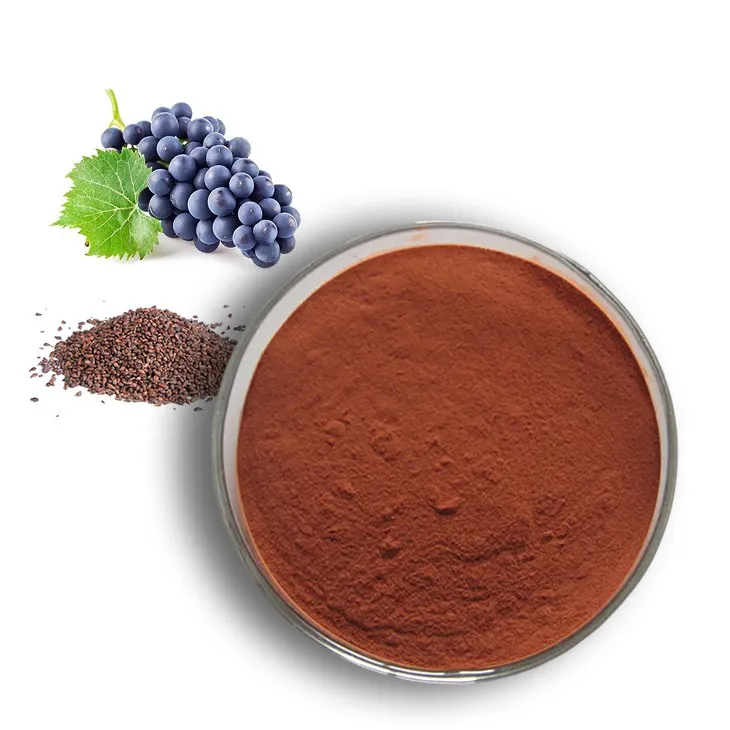
Red Grapes: A Primary Source
1. Varieties Matter
Not all red grapes are created equal when it comes to Grape Seed Extract production. Certain varieties are known for their high concentration of beneficial compounds. For example, the Pinot Noir grape is renowned for its rich flavor and also contains a relatively high amount of proanthocyanidins in its seeds. The Cabernet Sauvignon is another popular variety, which is widely grown in many wine - producing regions around the world. The seeds of Cabernet Sauvignon grapes are a valuable source of grape seed extract powder. These grapes typically have larger seeds compared to some other varieties, which can potentially yield more extract.
2. Geographic Regions
Geography plays a vital role in determining the quality of red grapes for grape seed extract. Regions with ideal climates, soil conditions, and sunlight exposure tend to produce grapes with superior qualities. In France, the Bordeaux region is famous for its high - quality grape cultivation. The grapes grown here benefit from the unique terroir, which includes factors such as the soil composition, climate, and local micro - climates. The Bordeaux red grapes are highly sought - after for wine production, and their seeds are also an excellent source of extract. Similarly, in California, the Napa Valley is known for its premium grape cultivation. The warm days and cool nights in this region contribute to the development of grapes with a high concentration of antioxidants in their seeds.
3. Cultivation Practices
Organic cultivation methods can also impact the quality of red grapes as a source of grape seed extract. Organic farms avoid the use of synthetic pesticides and fertilizers, which can potentially contaminate the grapes and affect the purity of the extract. Grapes grown organically are often considered to be of higher quality in terms of their nutritional value. Additionally, proper irrigation and vine management are crucial. Adequate water supply at the right times during the growth cycle ensures that the grapes develop properly, and the seeds within them are rich in the desired compounds. Pruning the vines helps to regulate the growth of the grapes, allowing them to receive sufficient sunlight and nutrients.
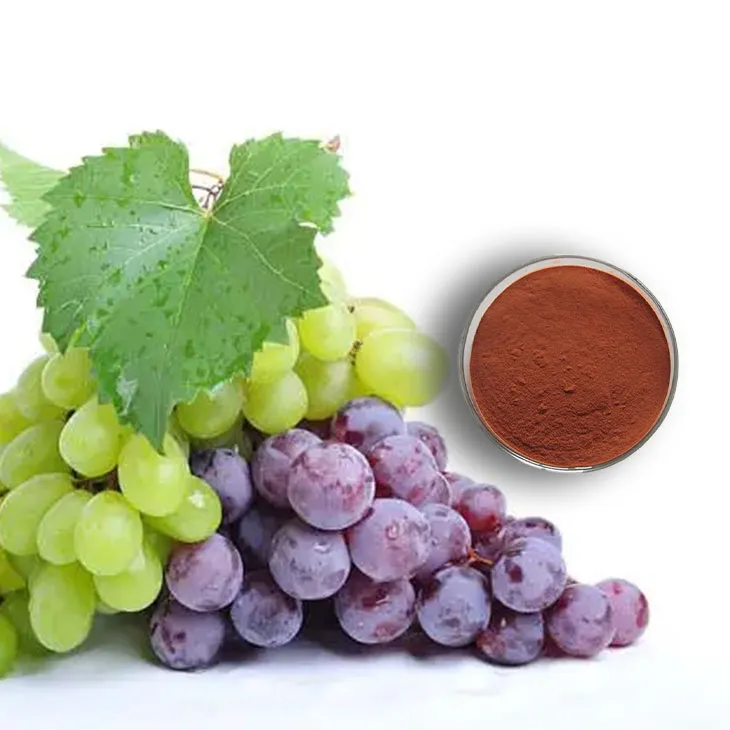
Wine - making By - products: A Valuable Resource
1. The Process of Obtaining Extract from By - products
During the wine - making process, a significant amount of grape seeds are left as by - products. These seeds are rich in proanthocyanidins and can be recycled to obtain grape seed extract powder. First, the seeds are separated from the grape pulp and skins. This can be done through mechanical processes such as pressing and filtering. Once separated, the seeds are typically dried to reduce their moisture content. After drying, they are ground into a fine powder. This powder can then be further processed using extraction techniques such as solvent extraction or supercritical fluid extraction. Solvent extraction involves using a solvent, usually ethanol or water, to dissolve the active compounds from the powder. Supercritical fluid extraction, on the other hand, uses a supercritical fluid, such as carbon dioxide, which has properties between a liquid and a gas. This method is often preferred as it is more environmentally friendly and can produce a purer extract.
2. Advantages of Using Wine - making By - products
One of the main advantages of using wine - making by - products as a source of grape seed extract is cost - effectiveness. Since these seeds are already a by - product of the wine industry, they are often available at a lower cost compared to sourcing grapes solely for extract production. Additionally, it is an environmentally sustainable practice. By recycling these by - products, it reduces waste in the wine - making industry. Moreover, the quality of the extract obtained from wine - making by - products can be quite high. The seeds from grapes used in wine - making are often from high - quality grape varieties, as winemakers tend to select the best grapes for their products. This means that the seeds can potentially contain a high concentration of proanthocyanidins and other beneficial compounds.
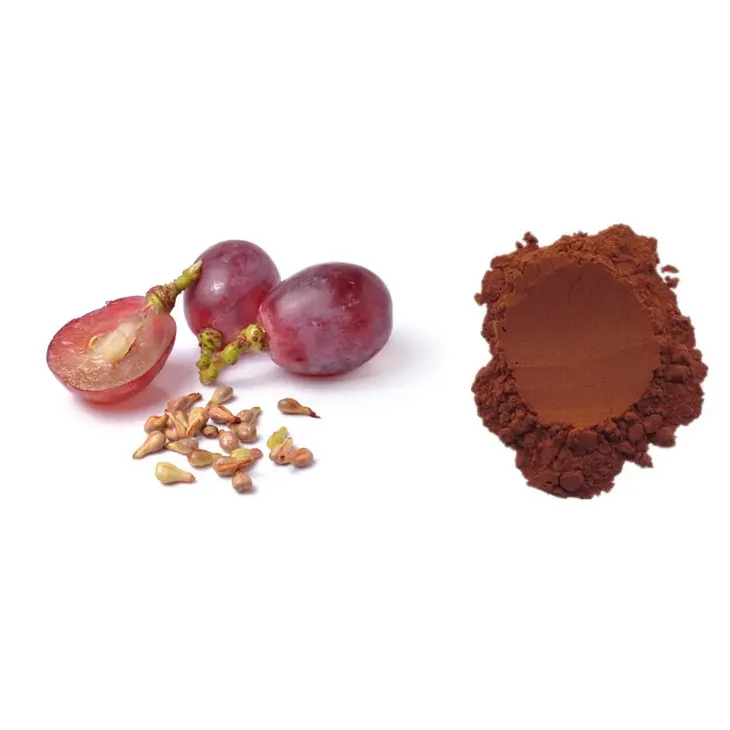
Specialized Grape Farms for Extract Production
1. Focus on Specific Grape Varieties
Some specialized grape farms are dedicated to growing grape varieties that are particularly suitable for grape seed extract production. These farms may focus on rare or heirloom grape varieties that are known for their high content of proanthocyanidins. For example, some ancient grape varieties that have not been widely commercialized for wine production may have unique properties in their seeds that make them ideal for extract production. These farms carefully select and cultivate these varieties, taking into account factors such as soil type, climate, and irrigation requirements. They may also conduct research on the best cultivation practices to maximize the yield and quality of the grape seeds.
2. Quality Control and Traceability
Specialized grape farms for extract production often place a high emphasis on quality control. They implement strict measures to ensure that the grapes are grown under optimal conditions. This includes regular testing of the soil for nutrient levels and pH, as well as monitoring the health of the vines. Traceability is also a key aspect. These farms are able to track the entire process from the grapevine to the final extract product. This allows consumers and manufacturers to have confidence in the quality and origin of the grape seed extract powder. For example, they can provide detailed information about the grape variety, the location of the farm, and the processing methods used.
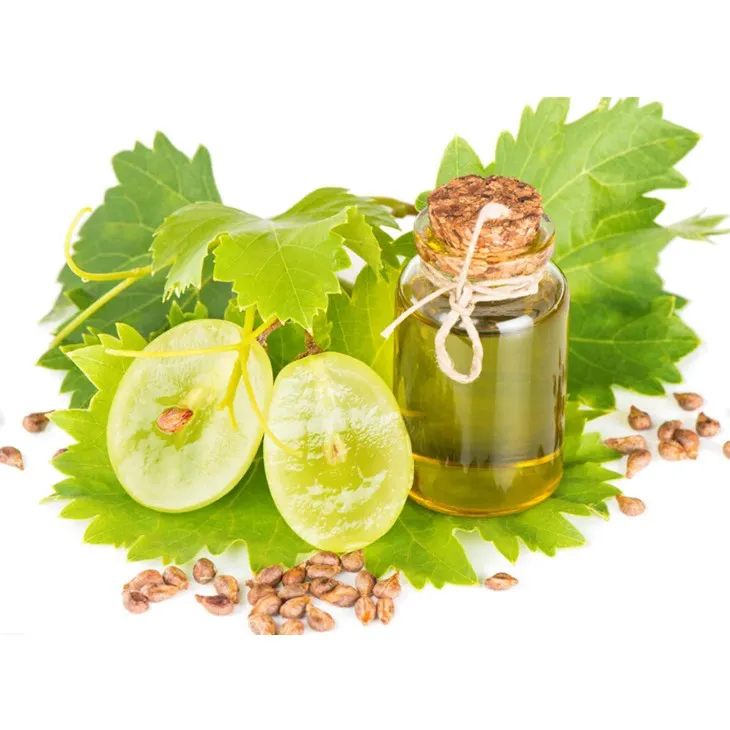
Conclusion
In conclusion, there are several excellent sources of Natural grape seed extract powder. Red grapes, especially those from specific varieties and regions, offer a high - quality source due to their natural composition and the influence of terroir. Wine - making by - products are a cost - effective and sustainable option, while specialized grape farms contribute to the production of high - quality extract through their focus on specific varieties and strict quality control. Understanding these sources can help consumers make informed decisions when choosing grape seed extract products, and manufacturers can ensure the quality and purity of their extracts by sourcing from the best available sources.
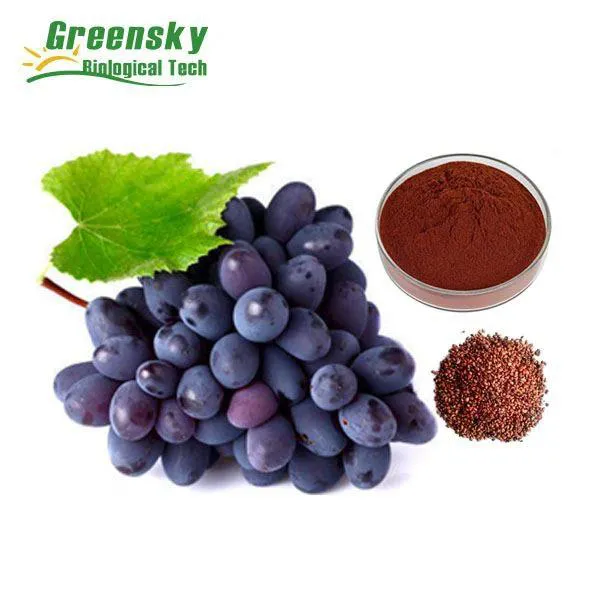
FAQ:
What are the main antioxidants in grape seed extract powder?
Proanthocyanidins are the main antioxidants in grape seed extract powder. These antioxidants are known for their ability to neutralize free radicals in the body, which can help protect cells from damage and contribute to overall health.
Why are red grapes a good source of grape seed extract powder?
Red grapes are a good source because they contain a relatively high amount of proanthocyanidins in their seeds. The seeds of red grapes from certain regions with high - quality grape cultivation often have a concentrated amount of these beneficial compounds, making them ideal for obtaining grape seed extract powder.
How are wine - making by - products used to obtain grape seed extract powder?
During the wine - making process, there are by - products such as grape seeds. These seeds can be collected and processed. Through various extraction methods, the beneficial components like proanthocyanidins can be isolated from the seeds of these by - products to produce grape seed extract powder.
What makes specialized grape farms suitable for grape seed extract production?
Specialized grape farms focus on growing grape varieties that are optimized for extract production. They may use specific cultivation techniques, select particular grape varieties with higher seed content or better quality proanthocyanidins. This specialization allows for a more efficient and high - quality production of grape seed extract powder.
Are there any differences in the quality of grape seed extract powder from different sources?
Yes, there can be differences. Grape seed extract powder from different regions' red grapes may vary in the concentration of proanthocyanidins due to factors like soil quality, climate, and grape variety. Also, the extraction methods used for wine - making by - products and those from specialized farms can affect the final quality of the powder.
Related literature
- Antioxidant Properties of Grape Seed Extract: A Review"
- "Grape Seed Extract: Sources, Production, and Health Benefits"
- "The Role of Proanthocyanidins in Grape Seed Extract: A Comprehensive Study"
- ▶ Hesperidin
- ▶ Citrus Bioflavonoids
- ▶ Plant Extract
- ▶ lycopene
- ▶ Diosmin
- ▶ Grape seed extract
- ▶ Sea buckthorn Juice Powder
- ▶ Fruit Juice Powder
- ▶ Hops Extract
- ▶ Artichoke Extract
- ▶ Mushroom extract
- ▶ Astaxanthin
- ▶ Green Tea Extract
- ▶ Curcumin
- ▶ Horse Chestnut Extract
- ▶ Other Product
- ▶ Boswellia Serrata Extract
- ▶ Resveratrol
- ▶ Marigold Extract
- ▶ Grape Leaf Extract
- ▶ New Product
- ▶ Aminolevulinic acid
- ▶ Cranberry Extract
- ▶ Red Yeast Rice
- ▶ Red Wine Extract
-
Troxerutin
2024-11-28
-
Mangosteen extract powder
2024-11-28
-
American Ginseng Root Extract
2024-11-28
-
Feverfew Extract
2024-11-28
-
Lycopene
2024-11-28
-
Nettle leaf extract
2024-11-28
-
White Willow Bark Extract
2024-11-28
-
Acerola Juice Powder
2024-11-28
-
Polygonum multiflorum extract
2024-11-28
-
Artichoke Extract
2024-11-28





















